Progressives Fear an American Future Led by High-Performing Products of Christian Education—Which Is Why It's So Important to Steward this Movement Well
Progressives Fear an American Future Led by High-Performing Products of Christian Education—Which is Why it’s so Important to Steward this Movement Well
The long-building Christian education movement—homeschooling, Christian schools, classical Christian education, etc.—has received increasing criticism in recent years. That’s because it is starting to matter on a national scale.
Take, for example, the common trope that kids who are sent to Christian schools (or who are homeschooled—even worse!) flame out immediately upon their first exposure to the real world. Just last month, a piece in Christianity Today brought this trite attack back into focus, arguing that attempts to “shelter” kids are risky and misguided and that public schools can be akin to strength training (“Your children need to build muscles of faith, and public school can provide weight to lift while you’re around to spot them”).
And every year or two, it seems, there’s a national media blitz from a prominent defector giving “tell-all” memoirs and interviews about the horrors of homeschooling or evangelical culture. Stories such as Tara Westover’s Educated are presented to us as the norm rather than what they are: extreme outliers.
This parade of horribles couldn’t be further from the truth. Children and young adults who are the products of the Christian education movement are doing quite well. As my friend Scott Yenor wrote recently for American Reformer, homeschooled kids are alright. The data show that kids educated in classical Christian or homeschool environments perform quite well, both in career-focused outcomes and in terms of remaining in the church, maintaining Christian social values, and family formation.
In reality, the Christian education movement is subject to increasing vitriol because it is starting to matter politically.
Consisting of roughly three distinct phases (first-wave Christian schools of the 1960s, crunchy homeschoolers starting in the 1980s, Classical Christian schoolers starting in the 1990s and onward), Christian education has been growing steadily since the 1990s and veritably exploding since 2020. According to recent estimates, over 3.1 million parents (predominantly Christian) homeschool their children, and another 3.5 million students attend private religious schools. If we assume, that roughly 5 million parents are giving their children a Christian education through homeschooling or private Christian school (a conservative estimate), such children comprise roughly 10% of the forthcoming generation.
This trend shows no sign of abating. States are rushing to adopt educational choice reform and under recent Supreme Court decisions, this funding can now flow to religious schools. America’s evangelical behemoth, the Southern Baptist Convention, has started to “vision cast” for its churches to plant Christian schools. What was once a crunchy and counter-cultural movement has gone mainstream.
Thank God for that. Consider, for a moment, the world these children will enter.
Lamentably, America is becoming more socially Darwinian. Collapsing fertility rates (aided by abortion and the abortion pill) mean fewer children. Those children who make it out of the womb face a world with loosened restrictions on weed use, online gambling, and porn. This is to say nothing of the trauma inflicted in public school through various social and sexual experiments and the more banal risks like constant screen time. Small wonder that a reported 42% of GenZ kids have been diagnosed with at least one mental illness.
God’s laws are good for us as creatures. This isn’t optimism, and it isn’t rooted in boutique eschatology; it’s just basic natural law. Communities capable of instilling self-enforcing virtue should generally outperform. We should expect this disparity to be especially stark in a society like ours, where the government actively facilitates vices that enslave and sicken young people. If our loves are rightly ordered, we should desire that our children outperform their secular counterparts—for their own good and hopefully for the good of their neighbors, too.
It will be a blessing for our nation to have 10% of the population—Christian-educated, well-formed, disproportionately high-performing—working their way into adulthood. The prospects are market-moving.
And this is why many in America’s supposed elite institutions are increasingly concerned about our movement. Elizabeth Bartholet, a professor at my law school alma mater, opined a few years back that the government has a right to choose how to educate its citizens and that homeschooling prevents kids from being exposed to whatever she means by “community values, social values, democratic values.” Amen, may it be so.
Bartholet is correct that education (meaning, literally, in the Greek, “enculturation”) is inherently political. Education is the formation of citizens; what could be more fundamental? Bartholet knows well that “the hand that rocks the cradle will rule the world.” And she is right to be alarmed. Christian education is unquestionably a grave threat to her progressive political goals.
So, don’t fall for cheap demoralization techniques. Mainstream society denigrates the thankless labors of the homeschooling mom. It derides the overtime hours and thriftiness of the working-class dad sending his kids to classical Christian school.
Society is eager to tell us that all these sacrifices won’t matter. But they do.
The strategy is working. We are winning. That much is clear.
What remains to be seen is how America’s largest Protestant denomination, the SBC, engages with and cultivates this movement. Southern Baptists cannot afford to leave the future of Christian education to the professional church bureaucrats who run our largest entities. Stewarding this culture-changing movement will require the minds, hearts, and hands of the faithful in the pews.
If we surrender this responsibility to the failed SBC leadership of the last decade, we risk letting this burgeoning powerhouse of a movement suffer co-option and compromise, which will render it ineffectual.
Which is precisely what our progressive opponents, who fear a future led by our Christ-loving, high-performing, and well-educated children, would love to see.
Share This Story

